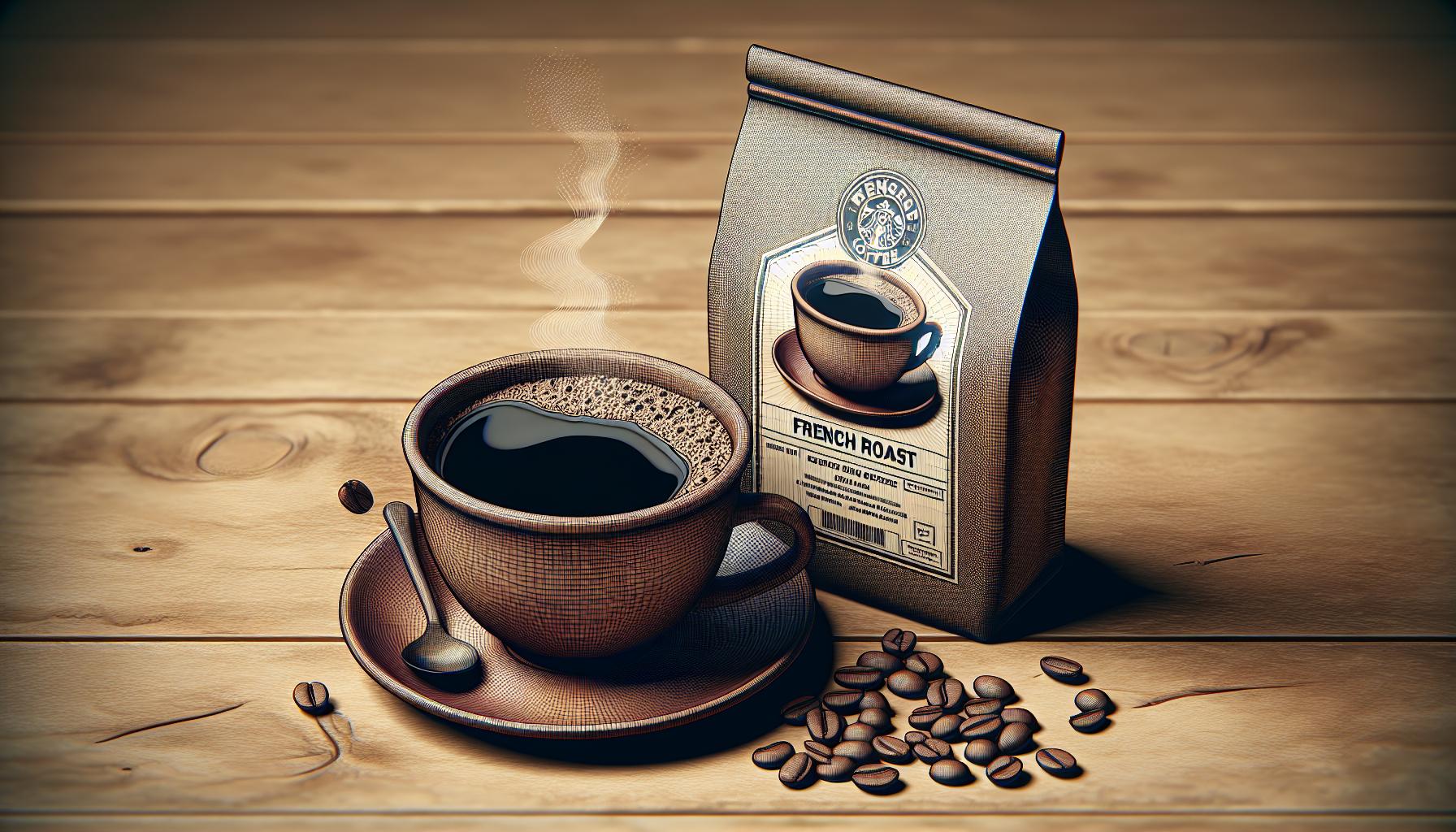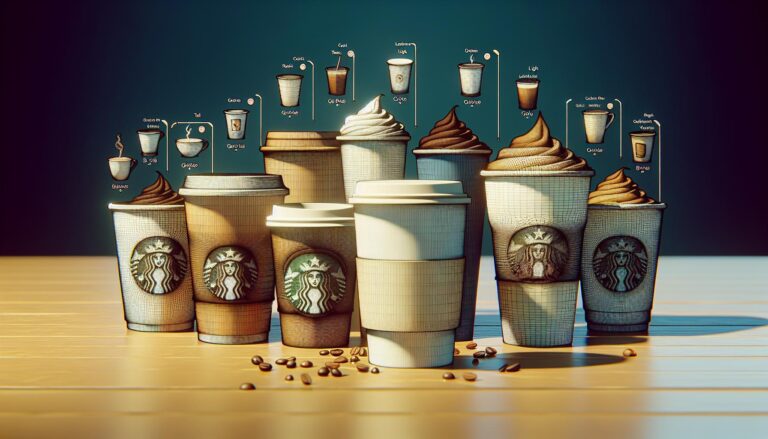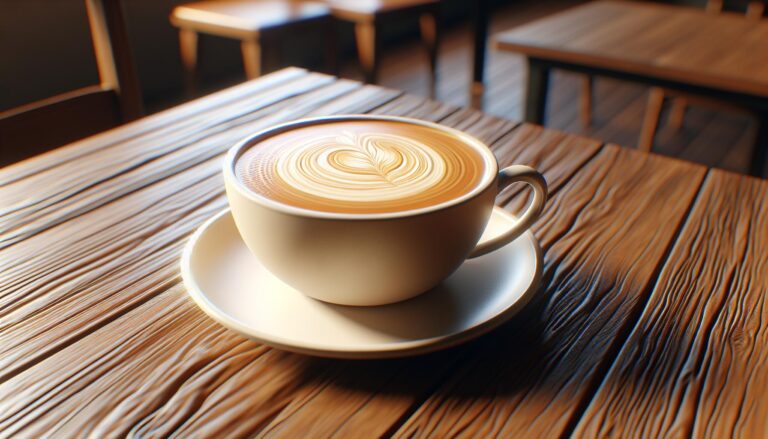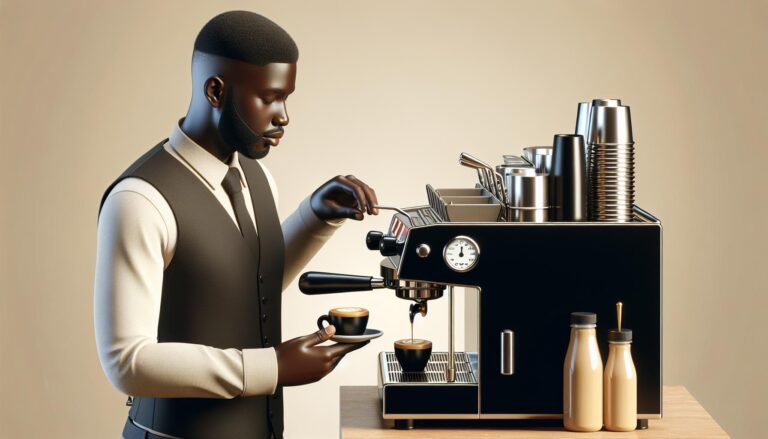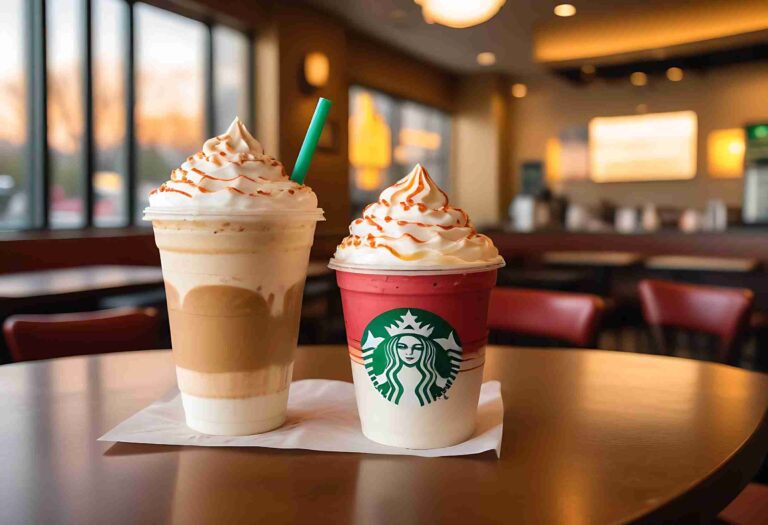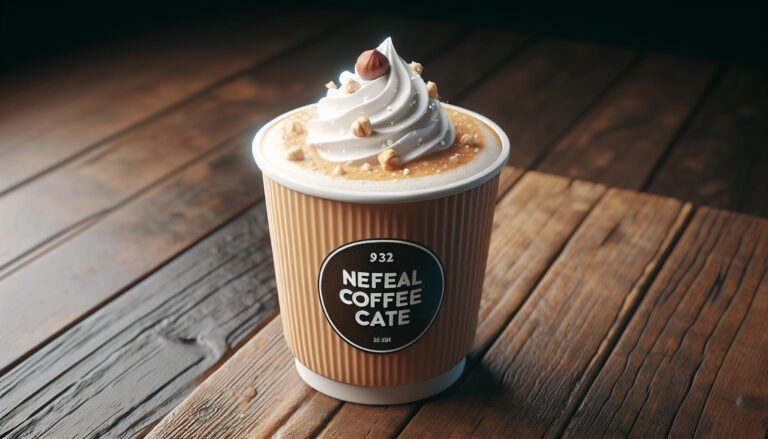Starbucks Dark Roast Caffeine Content: Facts, Myths, and Health Tips!
How much Caffeine is in a Starbucks Dark Roast? A standard 16-ounce (Grande) Starbucks Dark Roast coffee contains approximately 260 milligrams of caffeine.
The exact amount can vary depending on the brewing method and other factors, but typically, Starbucks Dark Roast is known for its strong flavor and high caffeine content.
In this article, we will explore the caffeine content of Starbucks Dark Roast coffee. Understanding how much caffeine is in your favorite cup of coffee can help you make informed choices about your daily caffeine intake.
Key Takeaways
- Caffeine Content: A 16 oz cup of Starbucks dark roast typically contains 260 mg of caffeine, debunking the myth that darker roasts have more caffeine.
- Roast Levels and Caffeine: Darker roasts are roasted longer, which reduces bean density but has minimal effect on caffeine content.
- Bean Types and Brewing Methods: Arabica beans, commonly used in dark roasts, have less caffeine than Robusta beans. Drip coffee generally contains more caffeine than espresso shots.
- Health Implications: Moderate caffeine intake can boost alertness and cognitive function, while excessive consumption may lead to insomnia, anxiety, and heart problems.
- Responsible Consumption: Limit daily caffeine intake to 400 mg, monitor for overconsumption symptoms, time your coffee intake appropriately, and stay hydrated.
Overview of Starbucks Dark Roast Coffee
Starbucks dark roast coffee offers a rich, bold flavor. Many believe it contains more caffeine, but this isn’t always true.
What Defines a Dark Roast
Dark roast coffee is roasted longer than lighter roasts. This gives it a deeper color and stronger flavor.
The beans are roasted until they reach an internal temperature of about 464°F to 482°F (240°C to 250°C).
The longer roast reduces the beans’ density and caffeine content, although the difference is minimal.
- French Roast: Known for its intense smokiness, this blend has a strong flavor and low acidity.
- Espresso Roast: This blend offers a rich, caramelly sweetness, ideal for espresso drinks.
- Italian Roast: A hearty coffee with a deep, roasted flavor.
Analyzing Starbucks Dark Roast Caffeine Content
Starbucks dark roast coffee brings rich flavor but doesn’t always mean higher caffeine. Caffeine varies among Starbucks dark roasts based on several factors.
Comparing Caffeine Levels in Different Dark Roasts
Caffeine levels differ in Starbucks dark roasts. A typical 16 oz cup of dark roast has 260 mg of caffeine.
For example, a 16 oz cup of French Roast dark roast coffee has 260 mg of caffeine. A 16 oz cup of Espresso Roast has around 260 mg of caffeine too.
The Italian Roast, also served as a 16 oz cup, holds about the same caffeine content of 260 mg. Despite similarities in caffeine content, each type offers different flavor profiles.
| Starbucks Dark Roast | Serving Size | Caffeine Content |
|---|---|---|
| French Roast | 16 oz | 260 mg |
| Espresso Roast | 16 oz | 260 mg |
| Italian Roast | 16 oz | 260 mg |
Factors Influencing Caffeine Content
Roast level influences caffeine content. As beans roast longer, they lose density but retain caffeine. Bean type and size affect caffeine content too.
Robusta beans, used less often in dark roasts, have more caffeine than Arabica beans which are commonly used.
The brewing method impacts caffeine content, with drip coffee usually containing more caffeine than espresso shots.
- Roast Level: Longer roasting reduces bean density, not caffeine.
- Bean Type: Arabica beans usually have less caffeine than Robusta beans.
- Brewing Method: Drip coffee often contains more caffeine than espresso.
Also Read: Starbucks Blonde Roast Caffeine Content
Health Implications of Dark Roast Caffeine
Starbucks dark roast coffee offers a rich flavor, but its caffeine content carries potential health effects.
Benefits of Moderate Caffeine Intake
Moderate caffeine intake can boost your alertness and concentration. You might notice improved mood and reduced fatigue.
Some studies suggest that caffeine improves cognitive function and memory. Consuming coffee may also lower the risk of certain diseases like Parkinson’s and Alzheimer’s.
Risks of Excessive Caffeine Consumption
Too much caffeine can cause health issues. You could experience insomnia, restlessness, and increased heart rate.
High caffeine intake might lead to anxiety and digestive problems. Long-term excessive consumption can result in chronic insomnia and heart conditions. Limit daily caffeine to 400 milligrams to avoid these risks.
How to Enjoy Starbucks Dark Roast Responsibly
Consuming Starbucks dark roast responsibly involves understanding its caffeine content and balancing your intake.
Follow these simple tips to ensure a safe and enjoyable experience with your favorite dark roast coffee.
Best Practices for Caffeine Consumption
- Monitor Intake: Limit your daily caffeine intake to 400 mg. For example, two 16 oz cups of Starbucks dark roast contain around 520 mg of caffeine.
- Listen to Your Body: Pay attention to signs of overconsumption like insomnia and anxiety. If you experience these symptoms, reduce your intake.
- Time It Right: Avoid consuming caffeine late in the afternoon to prevent sleep disturbances. Opt for morning or early afternoon enjoyment.
- Stay Hydrated: Drink water alongside your coffee to stay hydrated. Caffeine can have a diuretic effect.
Equip Yourself with Knowledge
Understanding the caffeine content in your Starbucks dark roast helps in managing intake. For instance, knowing that a 16 oz cup contains roughly 260 mg of caffeine can guide you in limiting your total intake per day.
Alternative Options
Consider switching to a lighter roast or decaffeinated options if you need to lower your caffeine consumption. Starbucks offers a variety of choices that allow you to enjoy coffee without high caffeine levels.
Spread Out Consumption
Spread your caffeine intake throughout the day rather than consuming it all at once. Enjoying smaller amounts more frequently can help manage your caffeine levels effectively.
Leveraging these practices ensures you savor your favorite Starbucks dark roast while keeping your caffeine consumption within healthy limits.
Also Read: Starbucks Pink Drink Caffeine Content
Conclusion
Understanding the caffeine content in Starbucks dark roast coffee can help you make informed choices about your consumption.
While dark roasts provide a rich, bold flavor, they don’t necessarily pack more caffeine than lighter roasts.
Factors like roast level, bean type, and brewing method all play a role in determining caffeine levels.
By monitoring your intake and listening to your body, you can enjoy the benefits of dark roast coffee without the drawbacks.
Remember to stay hydrated, consider alternative options, and spread out your caffeine consumption throughout the day.
This way, you can savor your Starbucks dark roast responsibly and maintain a healthy balance.
Frequently Asked Questions
Does dark roast coffee have more caffeine than lighter roasts?
No, dark roast coffee does not have more caffeine than lighter roasts. The roasting process reduces the bean density but does not significantly affect the caffeine content.
How much caffeine is in a 16 oz cup of Starbucks dark roast coffee?
A 16 oz cup of Starbucks dark roast coffee typically contains around 260 mg of caffeine.
What are some popular Starbucks dark roast varieties?
Popular Starbucks dark roast varieties include French Roast, Espresso Roast, and Italian Roast, each offering unique flavors.
What factors influence the caffeine content in coffee?
Factors include roast level, bean type, and brewing method. Darker roasts have less bean density but similar caffeine; Robusta beans have more caffeine than Arabica; drip coffee generally contains more caffeine than espresso.
Are there health benefits to drinking dark roast coffee?
Moderate caffeine intake can boost alertness, concentration, mood, and reduce fatigue. However, excessive consumption can lead to insomnia, restlessness, and anxiety.
How can I enjoy Starbucks dark roast responsibly?
Limit daily caffeine intake to 400 mg, listen to your body, time your caffeine consumption, stay hydrated, and spread out caffeine intake throughout the day. Consider lighter roasts or decaf as alternatives.

